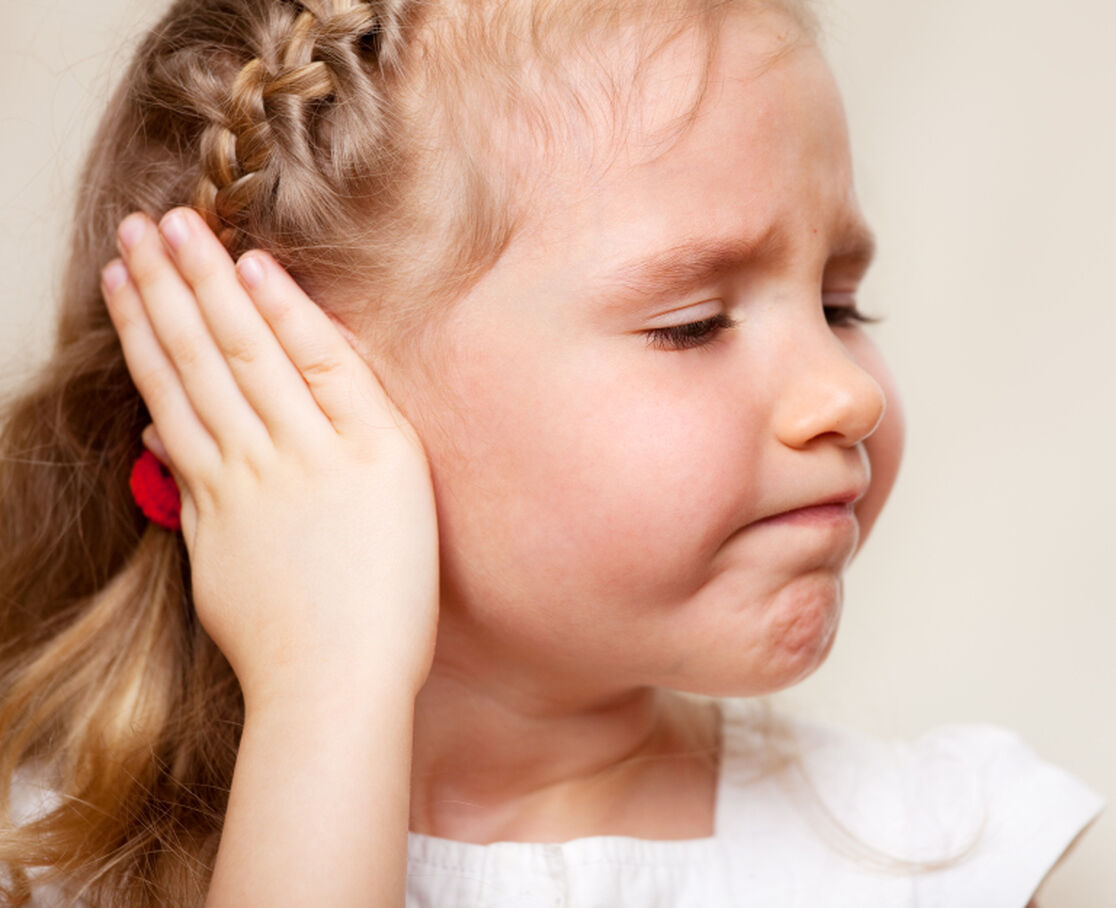Your baby’s (or toddler's) whining, fussing, shaking his head, and maybe even tugging at his ear. If he’s warm or feverish to boot, he’s probably got an ear infection.
According to WebMd:
Ear infections (acute otitis media) occur in the space behind the eardrum, which is called the middle ear. Ear infections are more likely to occur after a cold or other upper respiratory infection has been present for a few days.
During a cold, throat infection, or allergy attack, the tube that connects the throat and the middle ear (eustachian tube) swells and prevents air from entering the middle ear. This can create suction, which pulls fluid into the middle ear space. The fluid becomes trapped in the middle ear, allowing viruses or bacteria to grow and cause infection.
Ear infections are a common occurrence in childhood because the eustachian tube is still developing and is more horizontal than vertical, which means it doesn’t drain efficiently. The middle ear infection occurs because bacteria or a virus, most likely from allergies or a cold, create congestion in the eustachian tube. As the fluid builds, the inner ear infection grows and has a difficult time draining. The good news is that they are not contagious and only 1 in 8 children needs antibiotics. The other 7 out of 8 will recover with a little R&R and some simple treatments you can do right at home using common household items like face oil, garlic, and hot water!
An infected ear is painful for your baby. Pay attention to the following ear infection symptoms: tugging at the affected ear, continual crying due to ear pain, difficulty sleeping, and slight hearing loss. You may also notice that your baby has a high fever. If your baby has a high fever or severe ear infection symptoms for more than two days, we recommend visiting your doctor. Most babies will recover at home within 2-3 days, however, a middle ear infection can last up to six weeks. To help your baby at home with pain relief, there are several natural pain reliever options for your little one.
Here are five natural remedies for your baby's ear infection:
1. Garlic
Crush some garlic and warm it with extra virgin olive oil (EVOO). Let it cool to just about body temperature and then put a few drops in your baby’s ear. Leave it in for 15-20 seconds and then tilt your baby’s head to let the liquid drain out. Repeat three times daily.
EVOO and garlic have antibacterial properties to help battle the infection, and the warmth helps relieve pain temporarily. (Note: You can also buy natural garlic oil or liquid garlic capsules. Do not use this remedy if the eardrum is perforated or if the ear is leaking fluid. Check your child's ear carefully before trying this earache remedy.)
2. Fluids
The act of swallowing encourages fluid to move out of the eustachian tube. Breastfed babies can simply be nursed more often. Formula-fed babies can be offered extra clear fluids. (Note: To help prevent ear infections, don’t lay your baby on her back when drinking from a bottle.)
3. Hot compresses
Take a hot water bottle or wash cloth soaked in hot water (check temperature before placing on baby’s skin), and gently press on the ear to relieve pain. Repeat as often as needed.
4. Hydrogen peroxide
Make a mixture of 50% peroxide and 50% water. Place a few drops in the ear, allow to sit for 15 seconds, and then tilt your child’s head to drain the liquid out. Repeat twice daily. (Again, don’t use this if the eardrum is perforated.)
5. Massage
Try gently massaging the neck to help the lymph nodes drain fluid away from the ears. Use a gentle, plant-based body oil.
Note: Seek immediate medical help in case of a high fever, severe discomfort, or other complications.
What are your tips for dealing with infant ear infections? Do you have any toddler ear infection home remedy solutions that work well for your family?
Discuss in the comments below!
This information is solely for informational purposes. IT IS NOT INTENDED TO PROVIDE MEDICAL ADVICE. Before undertaking any course of treatment, you should seek the advice of your physician or other health care provider.
We aim to provide you with the most honest and credible information possible. This article was reviewed for accuracy by The Honest Team and was written based on sources that are linked at the bottom of the article.
blog_review_statement




